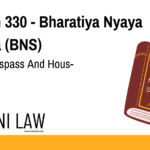Introduction: Maintenance and Welfare of Parents and Senior Citizens Act, 2007
The Maintenance and Welfare of Parents and Senior Citizens Act, 2007, was enacted to protect the rights and dignity of senior citizens in India. The Act ensures that elderly individuals receive financial support, healthcare, and protection against neglect and abuse. It imposes a legal obligation on children and relatives to provide maintenance to elderly parents and offers mechanisms for grievance redressal. Understanding the provisions of this Act is crucial for older citizens and their families to safeguard their rights and well-being.
Persons Covered Under the Maintenance and Welfare of Parents and Senior Citizens Act, 2007
- Older citizens aged 60 years and above, including parents (biological, adoptive, or step-parents).
- Childless citizens who are dependent on relatives for support.
- Children, grandchildren, or legal heirs responsible for maintaining elderly parents.
Key Rights and Benefits Under the Act
- Right to Maintenance. Older citizens can claim financial support from their children or relatives if they are unable to maintain themselves. The Maintenance Tribunal can order children to provide a monthly allowance for their parents’ basic needs.
Amount is based on earning of children. - Right to Shelter. Older citizens have the right to reside in their own home or claim residential rights in a shared household.
- Protection Against Abuse and Neglect.
The Act provides protection against mental, physical, and financial abuse. citizens facing harassment or mistreatment can file complaints with local authorities or the Maintenance Tribunal. - Healthcare Benefits. The government provides free healthcare services for older citizens at government hospitals.
Concessions and priority treatment are available for elderly patients in hospitals and pharmacies.
Older citizens can avail of home visits from healthcare professionals in certain cases. - Establishment of Old Age Homes.
The Act mandates the establishment of state-run old age homes for indigent older citizens. These homes provide shelter, food, and medical care for elderly individuals with no means of support. - Legal Protection and Speedy Grievance Redressal. The Act ensures a speedy legal process for older citizens through Maintenance Tribunals, which must resolve cases within 90 days.
Older citizens can seek legal support if their children fail to provide financial maintenance or if they face abuse.
Procedure to File a Complaint Under the Act
- Approach the Maintenance Tribunal.
File a written complaint with the local Maintenance Tribunal in the district where the senior citizen resides.
Provide necessary documents, such as proof of age, relationship with the respondent, and financial status. - Notice and Hearing.
The Tribunal will issue a notice to the children or relatives and conduct a hearing.
Both parties will be given an opportunity to present their case. - Order for Maintenance.
If the Tribunal finds the claim valid, it will order the payment of maintenance, which must be complied with by the children or relatives. - Appeal Process.
If either party is dissatisfied with the Tribunal’s decision, they can appeal to the Appellate Tribunal within 60 days.
Penalties for Non-Compliance
- Failure to comply with the Tribunal’s maintenance order can result in imprisonment of up to 3 months or a fine of up to ₹5,000.
- Abandoning a senior citizen under one’s care is a punishable offense.
Conclusion
The Maintenance and Welfare of Parents and Senior Citizens Act, 2007, is a crucial legal safeguard that upholds the dignity and well-being of the elderly. It ensures financial security, healthcare access, and protection against neglect. By being aware of their rights under this Act, senior citizens can take legal recourse if they face mistreatment, while families can fulfill their moral and legal duty towards their aging parents.









What action or advise when NDMC run old age home authorities are attaching stigma on the grounds of false accusations of misconduct on a senior citizen licensee resident with mala fide intentions to evict forcibly.